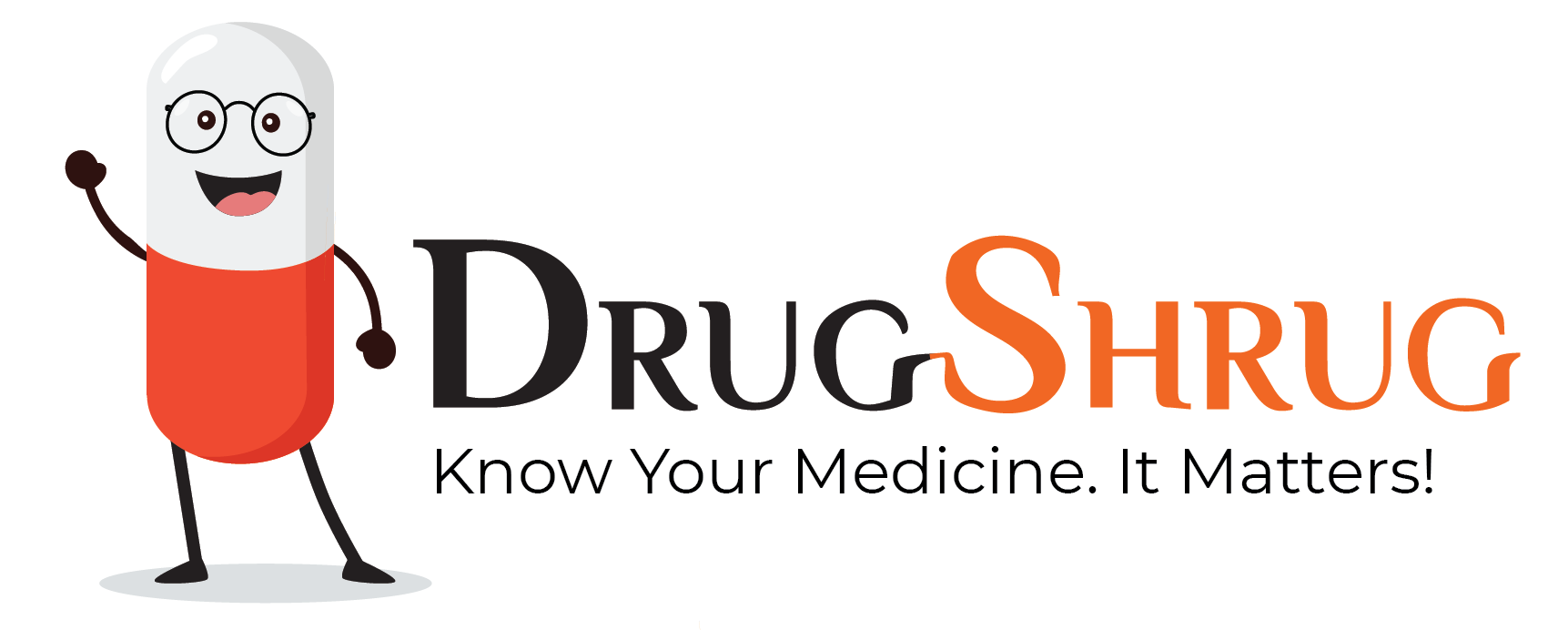What is Qbrelis?
Qbrelis is an ACE inhibitor employed to counter hypertension [high blood pressure] in adults and children who are as minimum as 6 years old. This drug is also prescribed to cure congestive heart failure in adults or to palliate survival post heart attack. The medication may also be utilized for purposes not mentioned in this concise clinical guide.
What are the common conditions in which Qbrelis prescribed?
This medicine is recommended to treat the following conditions:
- Hypertension [high blood pressure]
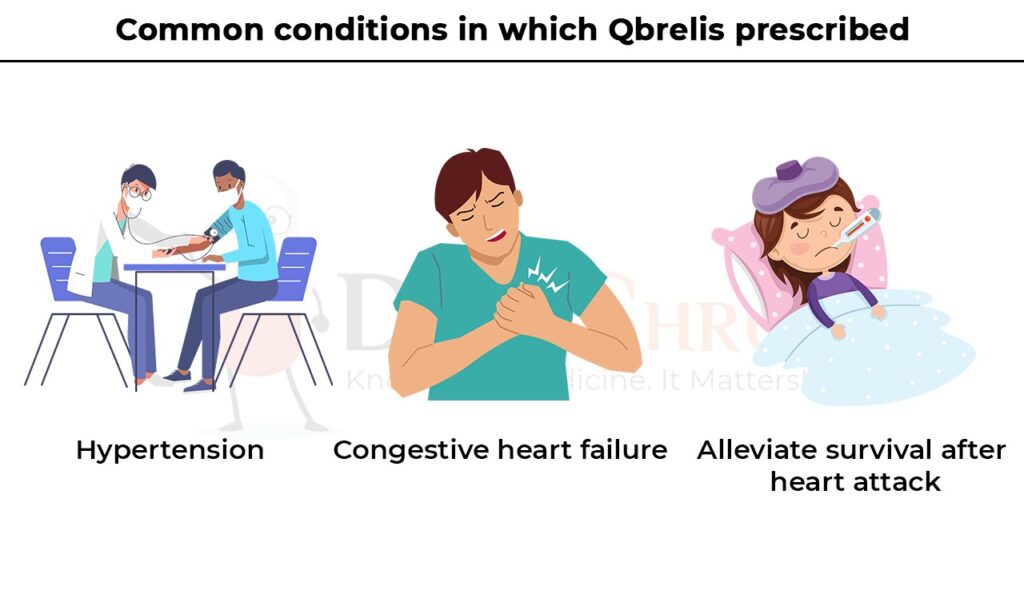
- Congestive heart failure
- Alleviate survival after heart attack
How should I take Qbrelis?
Adhere closely to the instructions of your doctor or as mentioned on the prescription label of the medicine. Your doctor may sometimes alter your dose. Take the medicine precisely as per the directions.
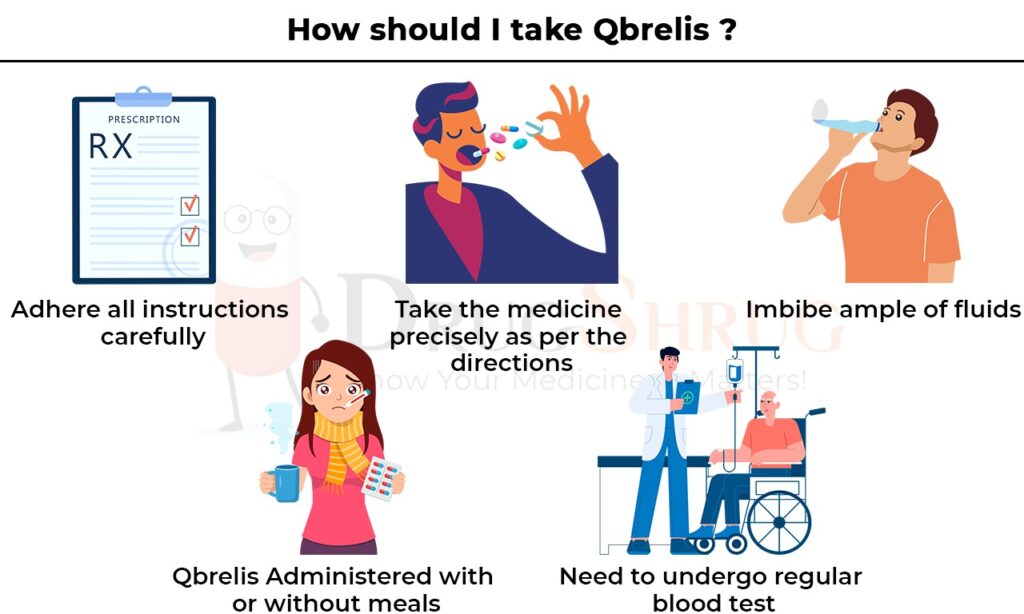
Imbibe ample of fluids/ water every day while you are using this medication. It can be administered with or without meals. Be precise in measuring the dose of liquid medicine. And use dosing syringe given, other doses measuring device to allot the medicine. Avoid using pantry spoon. You might need to undergo regular blood tests. Your doctor may also frequently examine your kidney function and electrolytes. If you have persistent vomiting and diarrhoea or abnormal sweating tell your doctor. This medicine may easily make you dehydrated which can cause severe electrolyte imbalance, low blood pressure, or kidney failure.
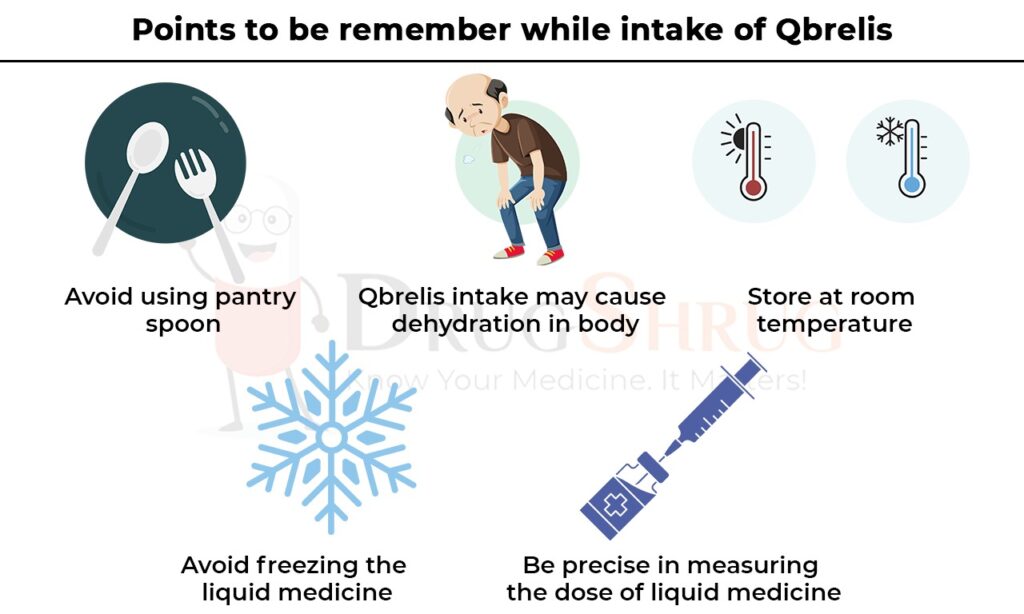
In case you are to undertake any surgery, acquaint your surgeon about the usage of Qbrelis beforehand. If you suffer from hypertension, continue using this medicine even though you feel fine. High blood pressure sometimes does not manifest any obvious signs. Thus, you may have to use blood pressure medicines for the lifetime. Store at room temperature in a cool and dry place. Avoid freezing the liquid medicine.
When you should not take Qbrelis?
Avoid taking this medication if you have sensitivity to it or in the following conditions:
- Had angioedema in past
- lately took a heart medicine named sacubitril; or
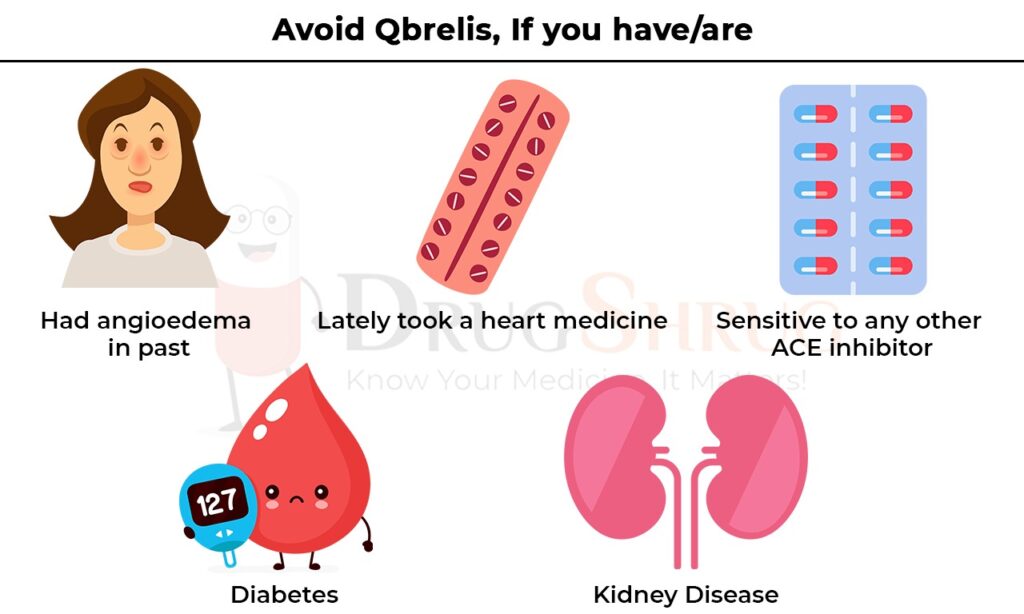
- are sensitive to any other ACE inhibitor, such as benazepril, captopril, enalapril, moexipril, perindopril, quinapril, trandolapril, ramipril and fosinopril.
Avoid using Qbrelis within 36 hours before or after having any medicine that consists of sacubitril (such as Entresto). In case you are diabetic, never take this drug along with any medicine which contains aliskiren (a blood pressure medication). If you have kidney disease, do not use this medicine with aliskiren.
Inform your doctor if you have ever faced:
- kidney ailment (or you are on dialysis);
- Liver illness or
- high potassium levels in your blood.
Avoid using this medicine and tell your doctor if you are pregnant about to get pregnant.
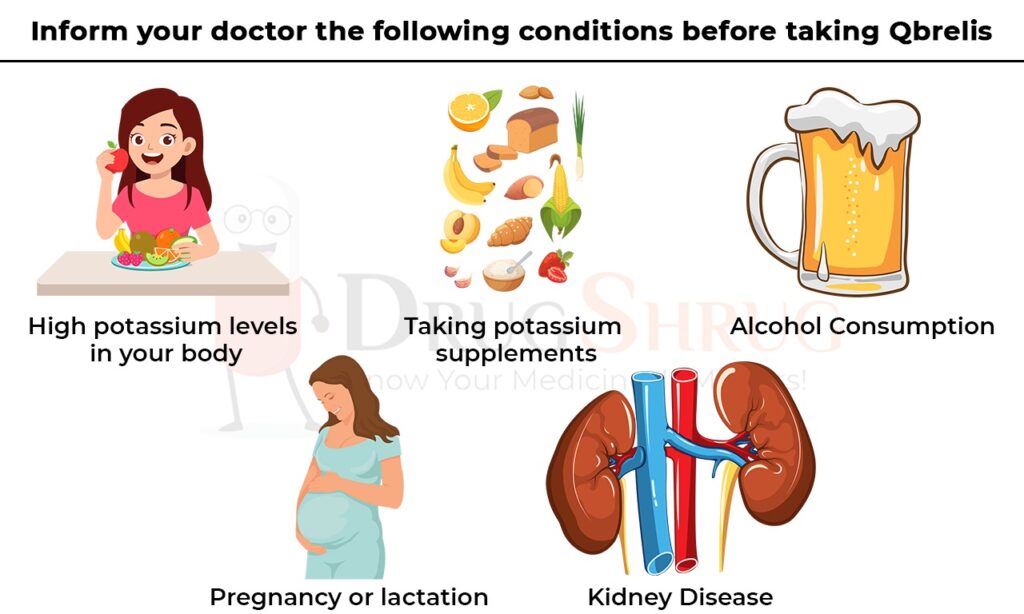
This is because Qbrelis can be harmful to the infant and may cause injury or death if taken during second or third trimester. Avoid suckling your child while using this medicine. Consuming alcohol can further decrease your blood pressure and might pose certain side effects of lisinopril. Do not get overheated or desiccated during workout, in hot weather, or by not ingesting sufficient fluids. This drug can lower sweating and make you more vulnerable to heat stroke. Except with doctor’s advice avoid taking potassium supplements or salt alternates. Do not rise abruptly from a sitting or lying state, otherwise, or you may feel light- headed.
What are the possible side effects of Qbrelis?
If you experience symptoms of allergic response to the medication such as hives, cough, chest pain, shallow breath, inflammation in your face or throat, seek immediate medical attention.
Allergic responses would be more common in African- Americans.
Tell your doctor immediately if you experience:
- Intense dizziness
- fever, strep throat
- high potassium: nausea, weakness, tingling, angina [chest pain], uneven heartbeats, movement loss;

- kidney problems: slight or no urination, puffiness in feet or ankles, fatigue or short breath; or
- liver problems: nausea, upper stomach ache, itching, tiredness, lack of appetite, dark urine, clay-coloured stools, jaundice (paling of the skin or eyes).
Common side effects may consist of:
- dizziness, headache;
- cough; or

- chest pain
However, these all are not the only possible side- effects, as it may show in other symptoms as well. Ask your doctor for clinical guidance about its side effects.
What to do if I miss the dose?
Always try to be punctual in taking your medicine. Although if you miss the dose for any reasons just skip it if it is almost time for your subsequent dose.
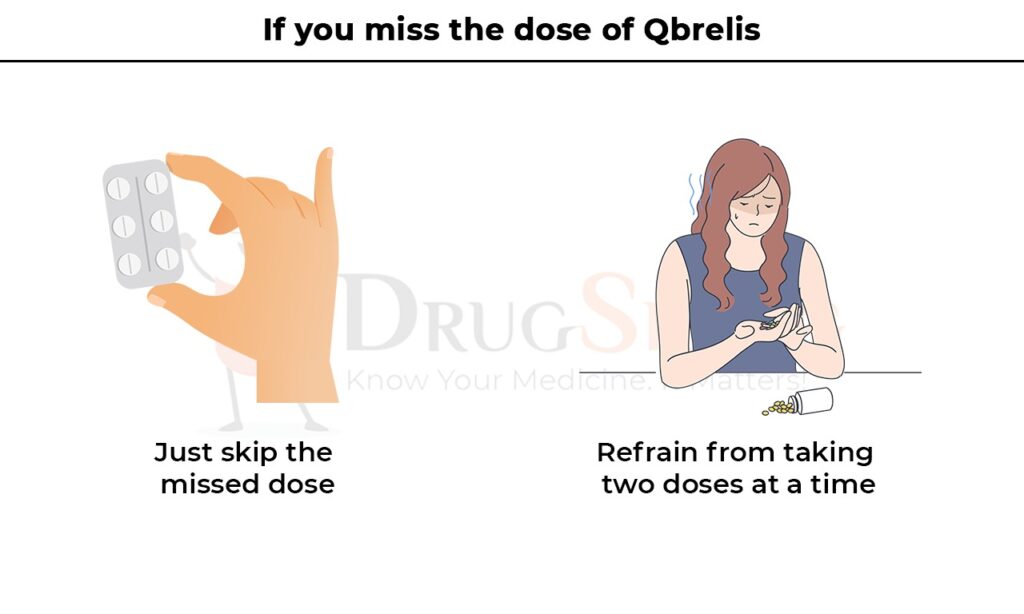
Refrain from taking two doses at a time.
Common Drug Interaction with Qbrelis
Acquaint your clinician about all other drugs you take, specifically:
- a diuretic drug or “water pill”;
- lithium;
- gold injections to cure arthritis;
- oral diabetes medicine or insulin;
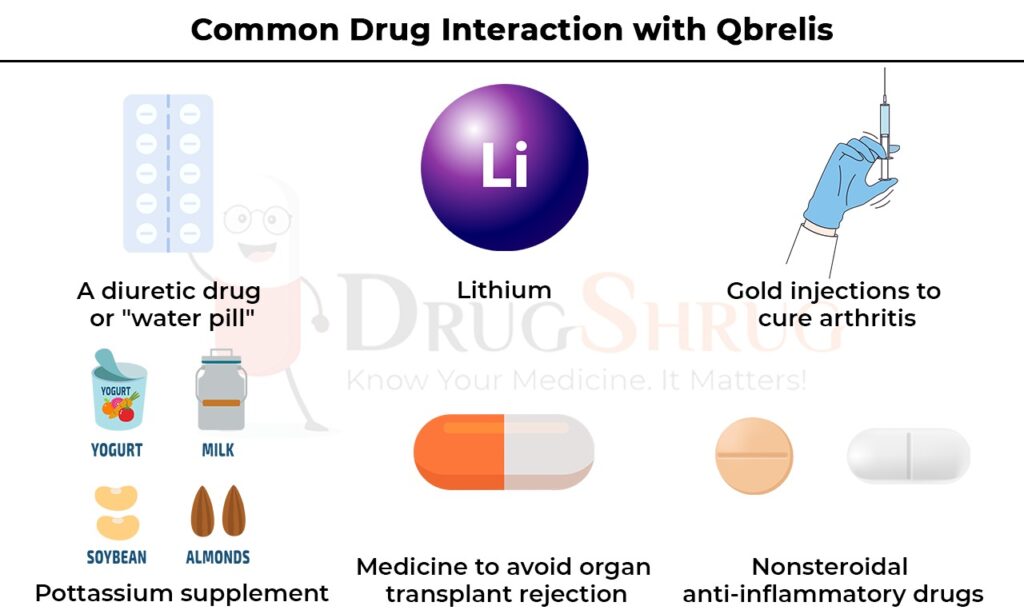
- a potassium supplement;
- medicine to avoid organ transplant rejection: everolimus, sirolimus, tacrolimus, temsirolimus; or
- NSAIDs (nonsteroidal anti-inflammatory drugs): aspirin, ibuprofen (Advil, Motrin), naproxen (Aleve), celecoxib, diclofenac, indomethacin, meloxicam, and others.
Other medications may interact with the qbrelis, including prescription and over-the-counter drugs, vitamins, and herbal supplements. It is imperative that you disclose to your doctor regarding your current medicinal course and any medicine that you started or stopped using.
Bottom Line
Qbrelis is used to cure hypertension, congestive heart failure and alleviate the condition of a person after heart attack. It must be administered specifically under the supervision of your medical professional to avoid any adverse consequences. Stick to precautions and if you observe any side- effect visit your doctor at once.
Further Reading:
